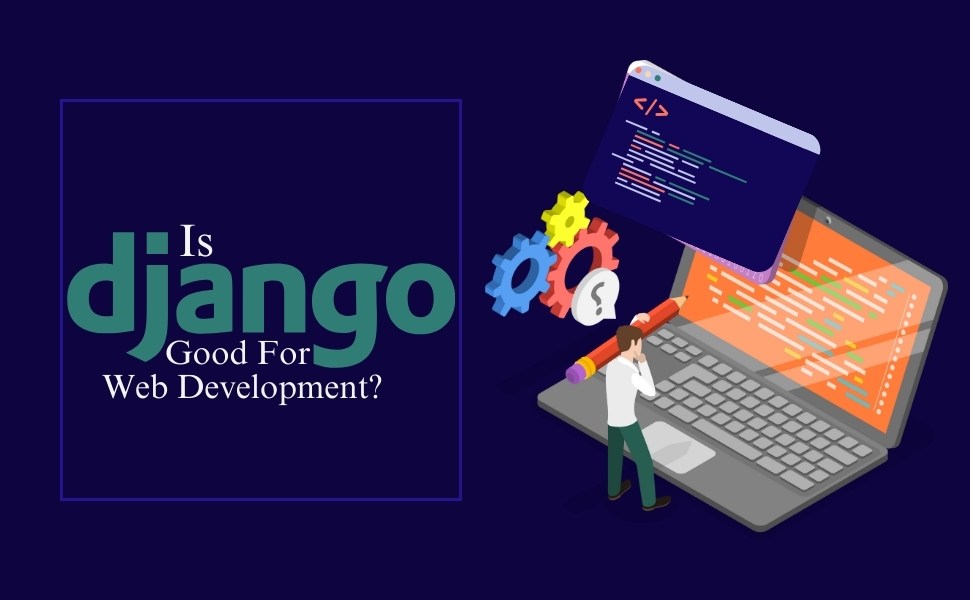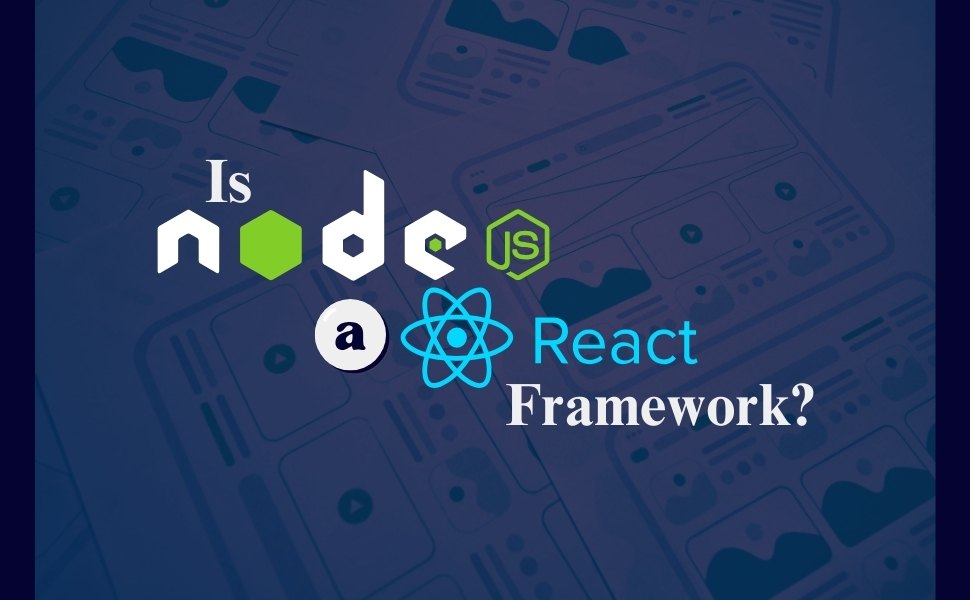In today’s digital world, businesses and developers need fast, secure, and scalable web solutions. Choosing the right framework is key to building high-quality applications that can grow with user demand. The web development project life cycle plays a crucial role in shaping how applications are planned, developed, and maintained. With so many options available, how does Django compare to other frameworks?
Django is a powerful Python web framework designed to simplify web development. It provides built-in tools for handling databases, security, and user authentication, allowing developers to build robust applications quickly and efficiently.
But is Django good for web development? To answer this, let’s explore its features, benefits, and real-world use cases to see how it stacks up against other frameworks.
What is Django?
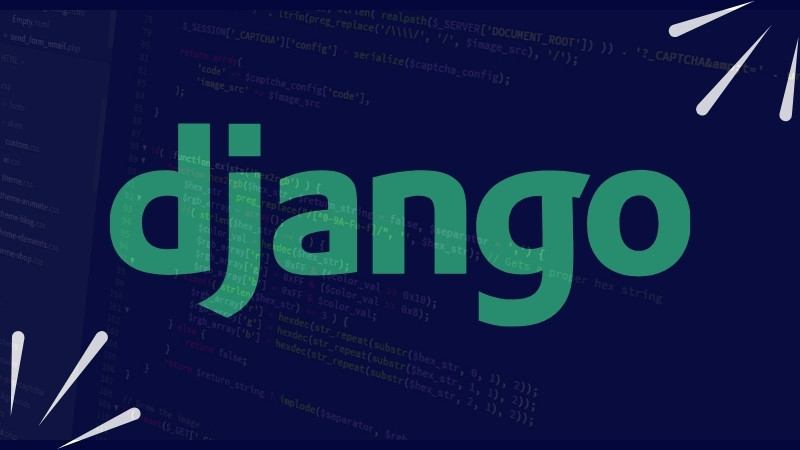
Django is a high-level Python web framework designed to make web development faster and more efficient. It provides a structured environment for building secure and scalable applications with minimal effort.
In frontend vs backend web development, Django serves as a backend framework, handling database management, authentication, and server-side logic. While frontend technologies manage user interactions and interface design, Django ensures data processing, security, and application performance on the backend.
Django’s “batteries-included” approach offers built-in tools for authentication, database management, URL routing, and security, reducing reliance on third-party solutions and accelerating web development with Django. Its Model-View-Template (MVT) architecture promotes clean, maintainable, and scalable code, making it ideal for content-heavy websites, enterprise applications, and scalable web solutions.
Features of Django Web Development
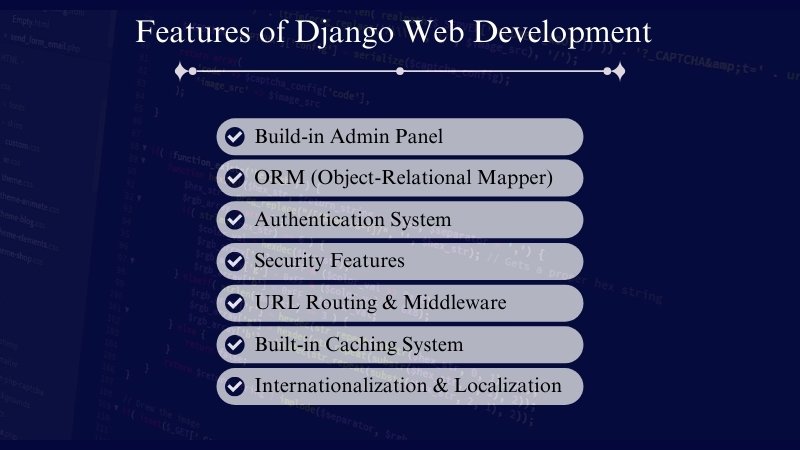
Django web development comes with built-in tools that help developers build secure, high-quality applications quickly and efficiently. As a backend framework, it simplifies server-side development, making it a preferred choice for developers working with modern backend programming languages. These features streamline development, reducing manual coding and improving reliability. Here are some of Django’s core functionalities—
1. Built-in Admin Panel
Django automatically generates an admin interface, allowing developers to manage databases, users, and website content with minimal coding. This makes it easier to test, edit, and organize data without building a separate dashboard.
2. ORM (Object-Relational Mapper)
Django’s ORM simplifies database interactions by allowing developers to work with databases using Python instead of SQL. This enhances Django scalability, ensuring smooth data handling, retrieval, and modifications.
3. Authentication System
Django provides a built-in authentication system for managing user registration, login, and permissions. It also supports third-party authentication providers like Google and Facebook, making it a top choice for web development.
4. Security Features
Security is a priority in Django web development. It offers built-in protection against SQL injection, XSS, CSRF, and clickjacking, helping developers build applications resistant to cyber threats.
5. URL Routing & Middleware
Django’s URL routing system makes it easy to map web pages to specific functions, ensuring efficient website navigation. Middleware processes requests and responses, improving security and performance.
6. Built-in Caching System
Django includes caching mechanisms that improve website speed by storing frequently used data. This reduces server load and enhances user experience—an important factor in how user experience affects SEO, especially for high-traffic websites.
7. Internationalization & Localization
Django supports multiple languages and regional formats, making it perfect for businesses targeting global audiences. Developers can easily translate content and adjust settings based on user location.
Read More: Is Python a Backend Language?
Why Was Django Created?
Before Django web development, developers had to write repetitive code to manage databases, handle user authentication, and secure applications. Backend optimization strategies were often manual and time-consuming, leading to inefficiencies. Django was created to streamline backend processes, providing a ready-to-use framework with built-in tools, reducing development time and improving performance.
The main goals of Django for web development are—
✅ Speed – Build web applications quickly.
✅ Security – Protect websites from common cyber threats.
✅ Scalability – Handle everything from small blogs to large platforms.
Exploring Web Solutions You Can Build with Django
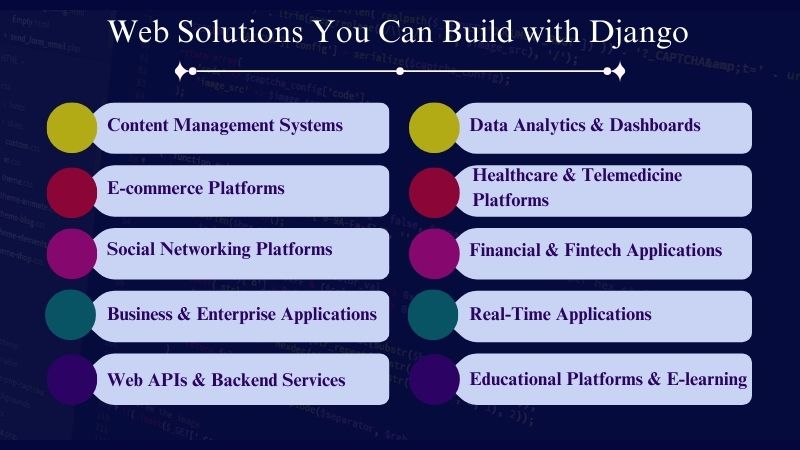
Django is a versatile Python framework that supports a wide range of web applications. Its scalability, security, and built-in features make it ideal for different industries, solidifying its place among the most in-demand backend frameworks. Here are some of the most popular Django web development solutions you can create—
1. Content Management Systems (CMS)
Django is perfect for building blogs, news websites, and publishing platforms. Its built-in admin panel simplifies content management, eliminating the need for extra plugins. As a powerful CMS web development solution, Django ensures flexibility, security, and scalability for managing digital content efficiently.
2. E-commerce Platforms
Businesses use Django for web development to create secure and scalable eCommerce websites. It supports payment gateways, inventory management, and user authentication, making it an ideal choice for e-commerce platforms. A well-structured eCommerce website development project plan is essential to ensure seamless functionality and growth in online businesses.
3. Social Networking Platforms
Django is used to build feature-rich social media websites with user profiles, messaging, notifications, and real-time interactions. Instagram, one of the largest social platforms, runs on Django.
4. Business and Enterprise Applications
Companies use Django for enterprise applications, including CRM systems, project management tools, and internal business platforms. Its security features help protect sensitive company data.
5. Web APIs & Backend Services
With Django REST Framework (DRF), developers can create powerful APIs to support mobile apps, IoT devices, and microservices architectures—making Django one of the best frameworks for web development.
6. Data Analytics & Dashboards
Django helps build data-driven applications for tracking metrics, generating reports, and visualizing analytics. It’s commonly used in finance and healthcare.
7. Healthcare & Telemedicine Platforms
Django’s security and compliance capabilities make it ideal for patient management systems, telehealth applications, and electronic medical records (EMRs)—ensuring Django security benefits for sensitive data.
8. Financial & Fintech Applications
Django is widely used in banking, trading, and financial management applications that require secure transactions and real-time data processing.
9. Real-Time Applications
With asynchronous processing and WebSockets, Django can support live chat platforms, stock market tracking tools, and collaboration apps.
10. Educational Platforms & E-learning
Many e-learning platforms and online course management systems use Django for startups and enterprises alike. Udemy, a popular education platform, is built with Django.
If you plan to develop a website, these will help you—
The Ultimate Website Planning Guide.
Pros & Cons of Django Web Development
While Django web development offers numerous advantages, it also comes with a few challenges. Let’s explore the Django pros and cons that businesses and developers should consider.
✅ Pros of Django Web Development
Django is a feature-rich web framework built with Python, one of the best languages for backend web development. It offers both technical and business advantages, enabling developers to build high-performance applications efficiently while providing businesses with scalability, cost-effectiveness, and security.
| Strength | Why It’s a Strength? |
|---|---|
| Faster Time-to-Market | Reduces development time by eliminating the need for third-party tools. Ideal for startups and enterprises needing rapid prototyping. |
| Lower Development Costs | Open-source framework with built-in tools, reducing extra coding and maintenance expenses. Eliminates licensing fees and ensures faster web development with Django. |
| Scalability for Growth | Successfully powers high-traffic platforms like Instagram and Udemy. ORM optimizes database performance and integrates well with cloud services. |
| Enterprise-Grade Security | Built-in protections against SQL injection, XSS, CSRF attacks, and secure password management make Django ideal for sensitive applications. |
| Flexibility | Suitable for eCommerce, social media, AI-driven platforms, and enterprise software, proving Django is one of the best frameworks for web development. |
| Long-Term Stability & Community Support | Regular updates, extensive documentation, and a strong developer community ensure continuous improvements and easy troubleshooting. |
| SEO-Friendly | Helps improve search engine rankings with clean URL structures and fast-loading pages, making it great for content-driven websites. |
❌ Cons of Django Web Development
Is Django good for web development? While it excels in many areas, its monolithic structure and learning curve can be challenging for beginners. Let’s see the reasons—
| Challenge | Why It’s a Challenge? |
|---|---|
| Monolithic Structure | Django follows a monolithic approach, which may not be ideal for microservices-based architectures. |
| Steep Learning Curve | Beginners may find Django complex due to its many built-in features and configurations. |
| Performance Overhead | Compared to lightweight frameworks, Django can be resource-intensive for small applications. |
Read More:
E-commerce Branding Guidelines.
Django vs Other Web Frameworks
Selecting the best framework for web development depends on many factors. Django web development stands out with built-in tools, minimizing external dependencies. Compared to Django vs other frameworks like Flask, Laravel, and Node.js, Django for web development offers a structured, secure, and scalable approach.
While Django competes with frameworks like Flask and Laravel, its comparison with Python vs Java for web development is also crucial, especially for enterprise applications requiring scalability and performance.
Flask is lightweight but requires manual integration of authentication and database handling. Laravel suits web applications but lacks Django’s scalability for large projects. Node.js offers speed and real-time capabilities but needs extra security measures—areas where Django excels with its security-first approach.
The table below provides a direct Django vs other frameworks comparison—
| Factor | Django | Flask | Laravel | Node.js |
|---|---|---|---|---|
| Performance | Optimized with built-in features | Lightweight, but needs extra setup | Slower than Django | High performance, async capabilities |
| Scalability | Handles high traffic efficiently | Better for small projects | Good for medium-sized apps | Scalable with microservices |
| Ease of Use | Full-featured, minimal setup required | Simple but needs manual configurations | Easy for PHP developers | Requires JavaScript knowledge |
| Security | Strong built-in protections | Needs third-party tools | Good security measures | Requires extra security setup |
| Built-in Features | Comes with admin panel, ORM, authentication, and security tools | Minimal, requires additional tools | Provides authentication and templating | Requires external libraries |
| Best Use Cases | Large-scale applications, data-driven platforms, enterprise software | Small to medium-sized apps | PHP-based web applications | Real-time applications, APIs |
Is Django Good for Web Development?
Finally, we arrive at the main question—is Django good for web development? The answer is YES! Django web development is a proven choice for building scalable, secure, and efficient applications, trusted by startups, enterprises, and tech giants.
Unlike lightweight frameworks, Django for web development offers a complete solution with built-in tools, eliminating the need for third-party integrations. Businesses save time on authentication, database connections, and security measures, as Django includes them by default.
A key strength of web development with Django is its ability to evolve with modern technologies like API development, AI-driven applications, and cloud-based architectures, making it a future-proof investment. Its strong foundation in Python, widely regarded as one of the fastest programming languages, further enhances its flexibility and scalability.
Moreover, Django web development ensures efficient, maintainable, and structured applications. Its strong architecture and community support help businesses find skilled developers easily, reducing long-term maintenance costs. For companies seeking stability and growth, Django for web development remains one of the best choices available.
Why Do Companies & Developers Choose Django?
🚀 Complete Framework – No need for third-party tools; Django provides everything you need, simplifying development and solving many common web development challenges.
📈 Future-Proof – Continuously updated to support modern web technologies.
💼 Business-Friendly – Reduces long-term maintenance costs and speeds up project timelines.
🔒 Industry-Proven – Used by major companies like Instagram, Pinterest, and Udemy.
🌍 Global Community Support – Large talent pool, ensuring easy hiring and troubleshooting.
Real-World Use Cases: Big Companies Using Django
Django is a proven framework that powers some of the biggest and most successful platforms worldwide. From social media giants to online learning platforms and e-commerce businesses, Django is trusted for its security, scalability, and efficiency. Many businesses, particularly in e-commerce, rely on Django to handle secure transactions, high traffic, and user management, aligning with the key features of an e-commerce website. Let’s explore some real-world examples—
1. Instagram – Social Media & Image Sharing

Instagram, one of the largest social media platforms, uses Django for web development to handle millions of active users, real-time interactions, and high-resolution image processing. Its ability to scale quickly while maintaining high performance makes Django a perfect fit for Instagram’s growing user base.
2. Pinterest – Visual Discovery & Bookmarking

Pinterest relies on Django to manage billions of images and user interactions daily. Its fast database management and caching capabilities allow Pinterest to deliver a smooth and responsive experience, even with high traffic.
3. Udemy – Online Learning Platform

Udemy, a top e-learning marketplace, is built on Django. The framework enables Udemy to handle thousands of courses, video streaming, student enrollments, and payment processing efficiently.
4. Mozilla – Web & Open-Source Software

Mozilla, the company behind Firefox, uses Django for its web services and internal tools, ensuring secure data management and content updates with ease.
5. National Geographic – Media & Publishing

National Geographic, content-heavy website, use Django for seamless article management, multimedia integration, and high-traffic handling.
6. Spotify – Music Streaming & Recommendations

Spotify uses Django for data analysis and backend services, helping to personalize user experiences and optimize music recommendations.
7. NASA – Scientific Data & Research

NASA leverages Django to manage massive datasets, scientific research, and space exploration data securely and efficiently.
Why Big Companies Choose Django
✅ Handles High Traffic – Supports millions of users with fast performance and caching.
✅ Scalability – Easily grows with the company’s expanding needs.
✅ Security & Reliability – Protects user data and ensures safe transactions.
✅ Efficient Data Processing – Ideal for companies handling large volumes of content and user interactions.
Django is a battle-tested framework trusted by industry leaders to build and maintain scalable, secure, and high-performance web applications.
Django’s Future in Web Development
Django for web development is not just a popular choice today—it is shaping the future of web development. Here’s why—
🚀 Growing Demand for Python – Python is now one of the most widely used programming languages. Since Django is a Python web framework, its adoption will continue to rise.
🚀 AI & Machine Learning Integration – Many modern applications require AI-driven features. Django works well with machine learning frameworks, making it useful for future tech advancements.
🚀 Continuous Updates & Improvements – The Django community regularly updates the framework, ensuring it stays secure, modern, and efficient.
🚀 Rising Use of APIs – More businesses are building APIs to connect mobile apps and web platforms. Django’s REST Framework (DRF) simplifies and strengthens API development, making it an essential tool in web development with Django.
Why Choose BoomDevs for Your Web Development Needs?
At BoomDevs, we specialize in Django web development and end-to-end web solutions tailored to your business needs. Whether you’re building a scalable web application, optimizing your backend architecture, or seeking expert guidance on modern web technologies, our team is here to help.
What We Offer—
✅ Custom Django Development – Scalable, secure, and high-performance solutions.
✅ Backend Optimization – Ensuring speed, security, and efficiency in your applications.
✅ E-commerce & CMS Solutions – Robust platforms tailored for seamless user experiences.
✅ API & Web App Development – Powerful integrations for modern businesses.
✅ SEO & Performance Optimization – Enhancing site speed and search rankings.
Get in Touch
Still unsure about Django web development or need expert guidance? Click the button below and let’s discuss how we can help your business grow!
[Contact Us Now]Closing Thoughts
So, is Django good for web development? The answer is a resounding YES!
Django web development is a robust, secure, and scalable solution that streamlines backend and frontend development while ensuring high performance. Its comprehensive built-in tools, and well-structured architecture make it a preferred choice for both startups and large enterprise applications.
Companies like Instagram, Pinterest, and NASA rely on Django for web development to build high-performance applications. Its strong security features, SEO benefits, and scalability make it an ideal Python web framework for long-term success.
For developers and businesses looking for a future-proof, secure, and high-performing framework, Django web development is one of the best options available.
Read More:



